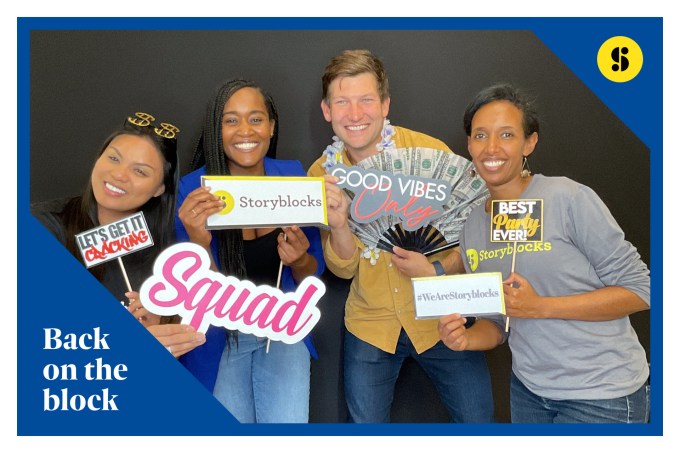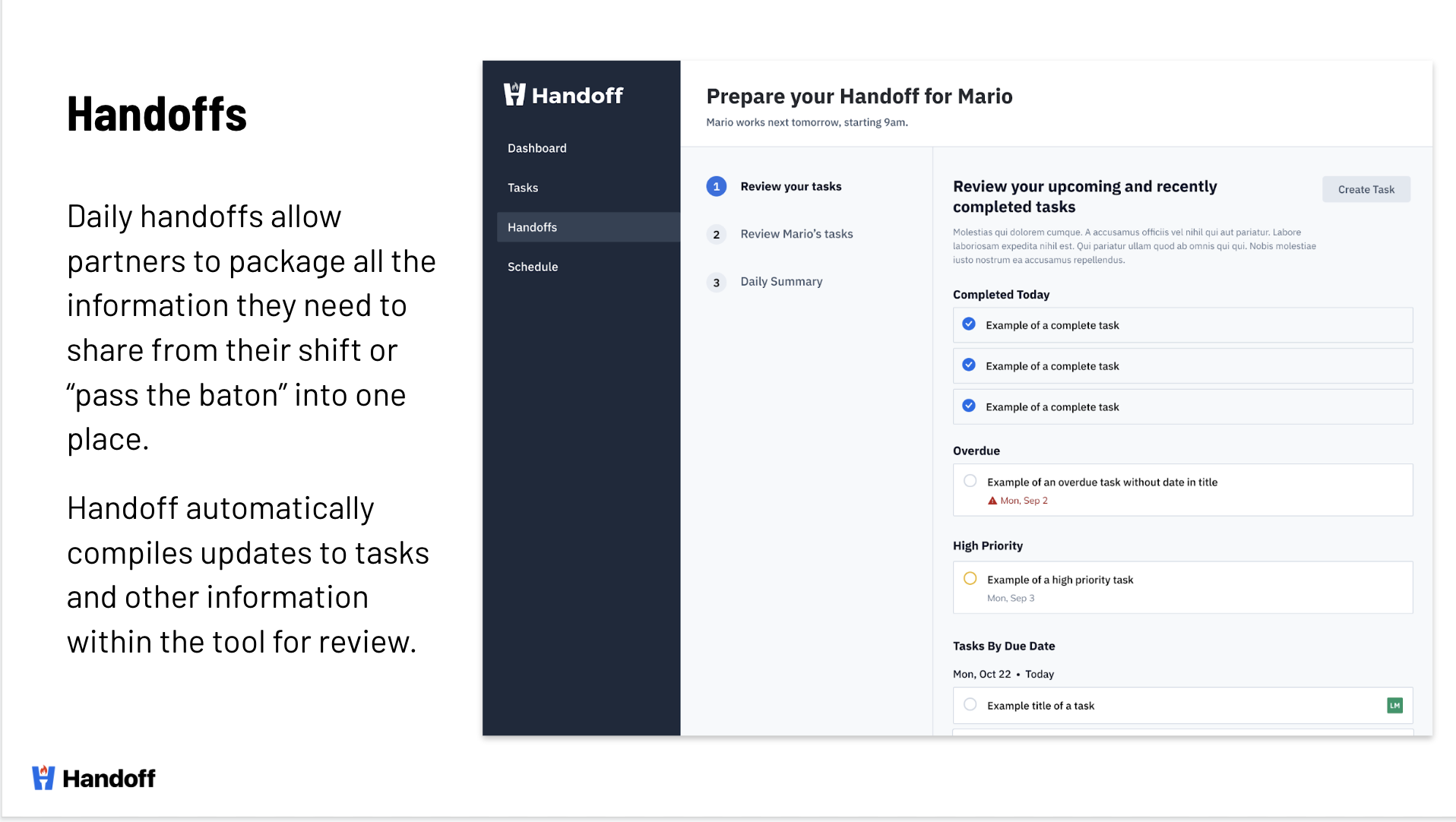
Storyblocks is Handoff’s first pilot partner. (Left to right) job-share partner Jodie Reyes, Handoff founder LaToria Pierce, Storyblocks CEO TJ Leonard and job-share partner Redeit Admassie. Image Credits: Handoff
Many qualified workers are failed by the current model of work in the United States, where jobs are either part time or full time. Working 40 set hours a week is difficult for people like caregivers, but part-time jobs don’t have the same benefits or career-advancing potential. Handoff, one of the startups in TechCrunch Disrupt Battlefield 200, wants to make a concept called job sharing, in which two people split the responsibilities and pay of a full-time position but get the same benefits, more widespread.
Founder and CEO LaToria Pierce started working on Handoff while she was taking part in Ideas42 Venture Studio. Pierce was asked to build from lived experience and challenges. She took inspiration from her mother, who was a single parent, and set out to make a solution that was inclusive of single moms. She spent a year talking to mothers in the workforce and employers.
“What I discovered is that there was this mismatch and the ‘why’ hit me — how come we aren’t seeing working mothers at certain organizations in certain roles? The 40 hour a week experience is a barrier for many parents and caregivers,” said Pierce. “They’ve got the skills, they’ve got the tenure and they’ve got the tenacity, but time can be an issue.”

Part of Handoff’s software for facilitating job shares. Image Credits: Handoff
Job sharing is already commonly used in many European countries, and Handoff’s mission is to scale it in the United States, too, by helping employers create a foundation to start offering job-sharing roles. Its minimum viable product is a job-sharing enablement tool that makes sure a job-sharing relationship is manageable and that work is split equally between the two people in it. When Handoff launched its first pilot program, “talent started showing up in droves,” said Pierce. So the startup set up a talent connection portal for them that fast-tracks employers to qualified, pre-vetted talent.
Job sharing can help diversity, equity and inclusion by getting more women, women of color and caregivers into the workforce, said Pierce. Handoff’s talent pool has a wide range of professional and educational backgrounds, including people with a high school degree and 10-plus years of experience, people who have MBAs, and people who have worked in the public or public sectors. 98% of the people who come through Handoff’s portal are caregivers and 75% are people of color.
Organizations are looking for people to fill business administration, executive and admin assistants, human resources and marketing roles. Pierce says those spaces are Handoff’s sweet spots because employers see high turnover and need to fill multiple positions but are struggling to hire qualified employees. It also recently kicked off a pilot program with group care homes, many of which already use a job-sharing system, to test Handoff’s software for employee coordination.
Handoff’s go-to-market plan includes working with employer partners (it is currently used by organizations like stock media service Storyblocks). It is now raising its pre-seed fund and targeting $500,000 to $1 million. The higher amount would give Handoff an extended runway of 18 months.
Handoff is creating a more equitable workforce through job sharing by Catherine Shu originally published on TechCrunch















 English (US) ·
English (US) ·